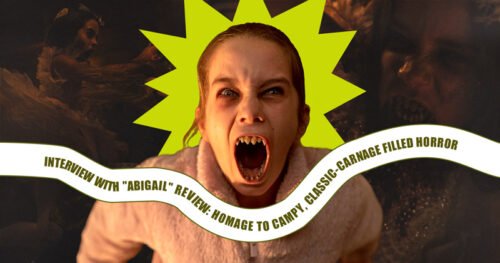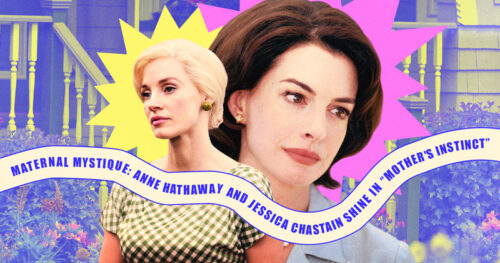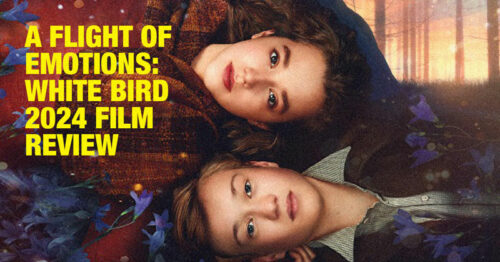What are the chances that “The Banshies of Inisherin” wins big?
The Banshees of Inisherin was my favorite movie of 2022. And consider it an educated guess, but I believe it will bag Best Picture at next month’s Academy Awards. Now, writer-director Martin McDonagh’s period tragicomedy might have some pretty stiff competition in the form of groundbreaking nominations leader Everything Everywhere All at Once but, given the relatively recent success of Bong Joon Ho’s Parasite (preceded by black and queer Moonlight) at the Oscars, will the predominately white Academy vote in favor of diversity, specifically Asian diversity, once again? It’s possible but not likely. Apart from the occasional non-Caucasian triumph, the overwhelming majority of nominees and winners at the Oscars have traditionally been—you guessed it—white. The Oscars’ decades long history of “racial uniformity” has been well documented. Having said that, The Banshees of Inisherin is an exceedingly Irish affair, but the fact remains: it’s one hell of a film.
RELATED: “Knock At The Cabin” Review: M. Night’s Done With Twists & Turns
The year is 1923. Folk violinist Colm (Brendan Gleeson) and sociable dairy farmer Padraic (Colin Farrell) are two lifelong friends in the desolate isle of Inisherin as the Irish Civil War rages on in the mainland, gun fire sometimes audible in the distance. Inisherin is an idyllic island village where very little happens outside of tending livestock, gossip and trips to the pub. For years, the pair has been drinking together every afternoon, when the suddenly melancholic Colm abruptly ends the friendship, offering a simple admission: “I don’t like you no more.” Padraic is both distraught and perplexed by this sudden turn of events and makes frantic pleas to his now ex-best pal to rekindle the lifelong bromance. Colm responds with apathy, claiming he’s become aware of his own mortality and doesn’t want to waste his days with a trifling drinking buddy.
Colm, it seems, is undergoing a fair deal of existentialist angst, as one does in a setting as lonely as Inisherin in the early 1920s. He recognizes his days are numbered, desiring to leave a creative legacy behind and meaningless trips to the pub with his uncomplicated friend have become a distraction. Colm eventually becomes fed up of Padraic’s desperation, claiming that each time he attempts reconciliation, he’ll cut off one of his fiddle-playing fingers. Does this act of grotesque self-mutilation symbolize an admission of failure? Depression? Regret?
Padraic, still in denial, becomes unrelenting. And true to his word, Colm first cuts off one a finger from his left hand then all of them—flinging each at Padraic’s front door with frustrated conviction. Also fed up with the limiting nature of Inisherin, Padraic’s live-in sensible sister Siobhan (Kerry Condon) contends with her own midlife crisis and leaves her beloved brother for the mainland in search of anything resembling ambition or excitement. Padraic is left in virtual isolation, having only his livestock and younger sidekick, the eccentric and dimwitted Dominic (Barry Keoghan) left by his side. Padraic’s beloved pet miniature donkey dies from choking on one of the fingers; this finally radicalizes the once-good natured farmer and he vows to set Colm’s house on fire as an act of retribution.
RELATED: “Babylon” Is A Roaring, Ambitious Period Epic
Though generally bleak, The Banchees Of Inisherin is also consistently funny. There’s just something about the word “fecking”—said with a thick Irish country accent—that is inherently hilarious. The writing is chock-a-block with understated witticisms and early 20th century Irish colloquialisms (non-Irish audiences might want to consider subtitles). Reunited In Bruges (another McDonagh knockout) stars Farrell and Gleeson play their roles to a tee, stony-faced while delivering darkly comedic lines with extreme precision. Even its supporting cast provides ample comic relief: the morally bankrupt, local constable, the temperamental town priest and Dominic, the intellectually challenged mate of Padraic. Though Ke Huy Quan will be tough to beat, Barry Keoghan is a sleeper for Best Supporting Actor at the Oscars; his nuanced and goofy performance as the dimwitted Dominic was sensational.
Inisherin itself is an atmospheric and dreamy place with rustic, pastoral beauty and stunning seaside vistas. In terms of visual aesthetics, director Martin McDonagh and cinematographer Ben Davis had an ideal canvas to work with. The film has the distinct qualities of an epic: the historic time period, its fable-like backdrop, its mythic score. But in hindsight, The Banshees Of Inisherin is a simple piece of storytelling, one that depicts the vengeful and visceral nature of the human condition and feelings of regret and isolation—feelings that plague us all to some extent but tend to be enhanced on an isle in the far reaches of civilization. The Banshees of Inisherin is both funny and tragic and watching it is a resounding act of catharsis. Come March 12, we will be surprised if it doesn’t make a major haul at the Oscars, and this includes Best Picture. And this year, hopefully whoever wins isn’t overshadowed by a slap or any other inanimate act of violence.
Words Art Vandelay
Art Matthew Ian Fetalver


















